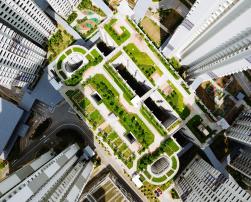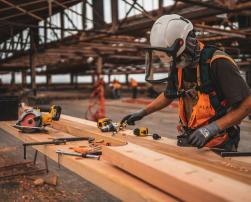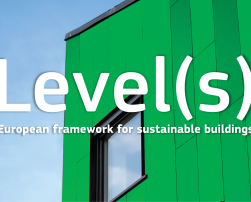
Reflections on UPGREAT’s Educational Activities
The drive towards energy-efficient building practices, exemplified by initiatives like the EUKI project UPGREAT, underscores the pivotal role of education and training.

Exchanges of visions on sustainable architecture between Europe and the Caribbean
A discussion aimed at exploring innovative approaches within sustainable architecture.

Modular construction’s sustainable approach to housing crisis
Modular construction offers significant environmental advantages and addresses pressing global issues, such as the housing crisis and refugee displacement.

Is there any reason to fear building renovation?
Energy-efficiency buildings will have benefits for the economy, climate, health and well-being of European citizens.

Building a sustainable future: the 2024 NEB prizes
2024 NEB Prizes celebrate sustainable, inclusive projects in Europe's built environment.

ComActivate project: New initiative to address energy poverty in Central and Eastern Europe
A new project has launched to respond to sluggish renovation rates of residential buildings and high energy poverty levels in Central and Eastern Europe by empowering local communities and developing Neighourhood Energy Sufficiency Roadmaps.

Bridging the skills gap in construction and renovation in Croatia
Croatia's construction sector lacks skilled workers, necessitating better alignment of education with industry needs to address the skills gap

Belgrade: towards energy sustainability in public buildings
Up to 26 government buildings in the Serbian capital will be made more energy efficient, with the aim of reducing emissions and energy costs.

European Council adopts revised rules mandating global warming potential reporting for buildings
On 12 April the European Council adopted revised energy performance rules for buildings with the goal of reducing greenhouse gas emissions and energy poverty in the European Union.

Zero-emission Europe starts with buildings
The European Council adopts the directive requiring all buildings to be zero-emission by 2050. Zero emissions for new buildings as early as 2030.